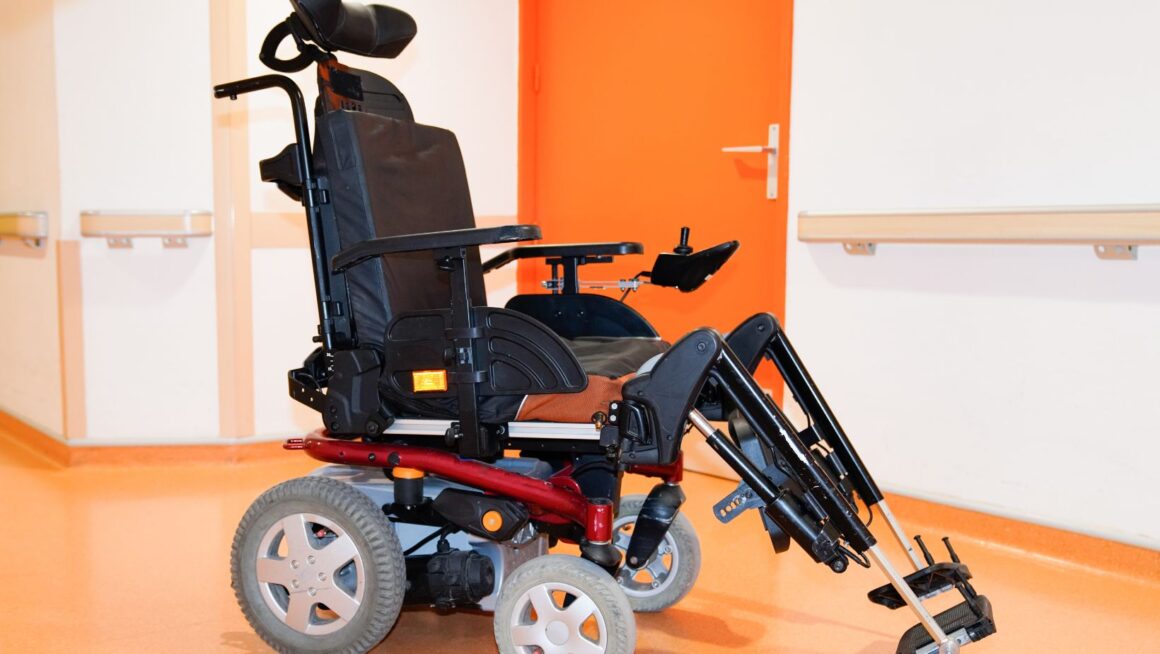Disability chairs have evolved remarkably over recent years, moving beyond basic functionality to become devices that enhance independence, comfort, and mobility in daily life. With features like adaptive control systems, ergonomic designs, and innovative add-ons such as Power Wheels, today’s disability chairs with wheels are transforming what’s possible for those with limited mobility. These chairs aren’t just about movement—they’re designed to support an active lifestyle both at home and out in the community. Here, we explore some exciting advancements in disability chairs that are expanding what users can do.
Smart Technology That Adapts to You
A significant shift in disability chairs has come with the integration of smart technology, making these chairs more responsive to individual needs. Modern mobility chairs often offer various control options, allowing users to select between joystick controls, touchpads, or even voice commands based on what feels most intuitive. This adaptability allows individuals to control the chair precisely, even in tricky environments.
Some chairs now come with memory functions, so users can save settings for seat height, tilt, or recline angles, adjusting quickly to their ideal position with the touch of a button. Imagine being able to move from the kitchen counter to a reclined position in the living room seamlessly. These types of functions don’t just offer physical comfort—they provide a smoother way for people to go about their day independently without needing frequent assistance or interruptions.
Comfort and Health Benefits Built In
For those who spend extended periods in their disability chairs, ergonomic design can make all the difference in comfort and well-being. Chairs with ergonomically designed seating reduce issues like back pain, pressure sores, and poor circulation, which are common with prolonged sitting. Many mobility chairs now offer options like adaptive cushions, lumbar support, and even temperature control for optimal comfort throughout the day. Breathable fabrics help prevent overheating, and customizable support ensures that each chair fits the individual’s body for better comfort and health.

Another helpful feature is adaptive footrests that can tilt or recline to improve circulation and reduce leg swelling. These aren’t just add-ons—they’re vital for maintaining health over time, especially for users managing chronic pain or mobility issues. By helping users avoid discomfort, these features encourage them to stay engaged in activities they enjoy without the limitations of physical strain.
Flexible Movement with Power Wheels
Power Wheels are a game-changer for disability chairs, offering a new level of mobility for those who need an extra boost. Power Wheels make it easy to switch between moving the chair manually or with powered assistance, allowing users to save energy when they need it most. This flexible option lets users decide how much support they need, whether they’re navigating a large indoor space or heading outside.
Having control over when to engage in powered movement brings independence and peace of mind. Power Wheels also offer adjustable speeds, making it easy to adapt to different environments. This ability to change settings based on the task or setting gives users a greater sense of control and ensures that the chair moves as they need it to—smoothly, efficiently, and comfortably.
Social and Travel-Friendly Features
Today’s disability chairs go beyond physical support by helping users stay socially connected and mobile. Lightweight, foldable designs allow chairs to fit in cars or on public transport easily, so users can take part in family gatherings, social outings, or travel with fewer limitations. This portability makes it possible to participate fully in social events, removing barriers that might otherwise restrict activity.
Additional features like USB charging ports and built-in compartments add convenience for those who want to keep devices and essentials close by. With these options, users can stay connected and charged up on the go, ensuring their disability chair supports not only their mobility but also their social needs. These adaptive designs promote an active lifestyle, helping people engage more freely in daily life.
Customizing for Comfort and Daily Use
Each person’s needs are unique, and modern disability chairs reflect this with a range of customizable options. Many models allow users to adjust everything from seat width and cushion firmness to additional supports for the back, neck, or legs. This customization ensures that each chair fits comfortably and provides practical support for daily routines.
For example, users might opt for memory foam cushions for extra comfort, high-back support for posture, or adjustable armrests for easy access at tables or desks.

Accessories like detachable trays, headrests, and footrests give users a truly personalized experience, making it easier to go about their day without discomfort. This customization makes the chair feel like an extension of their personal space, allowing them to stay active without compromising on comfort or support.
Adapting the Home for Greater Accessibility
Many disability chairs are designed with home accessibility in mind, making it easier to navigate tight spaces and reach work areas. Low-profile models allow movement through narrow doorways, and height-adjustable chairs bring users to the right level for counters, sinks, or tables. These adaptations turn kitchens, bathrooms, and bedrooms into more accessible areas, making everyday tasks easier and more independent.
Some chairs include programmable settings that allow users to adjust their position based on the room or activity, moving seamlessly between settings for relaxation, work, or meal prep. This kind of adaptability allows users to move through their homes comfortably and safely, fostering a sense of independence in daily life.
Looking Ahead with Technology-Driven Mobility
The future of mobility chairs is bright, thanks to technology that supports both physical and emotional well-being. With advances in adaptive technology, ergonomic features, and smart design, disability chairs are expanding possibilities for a more active and connected lifestyle. These innovations make mobility chairs a powerful ally, enhancing not only physical comfort but also the freedom to explore and engage fully in everyday life.

